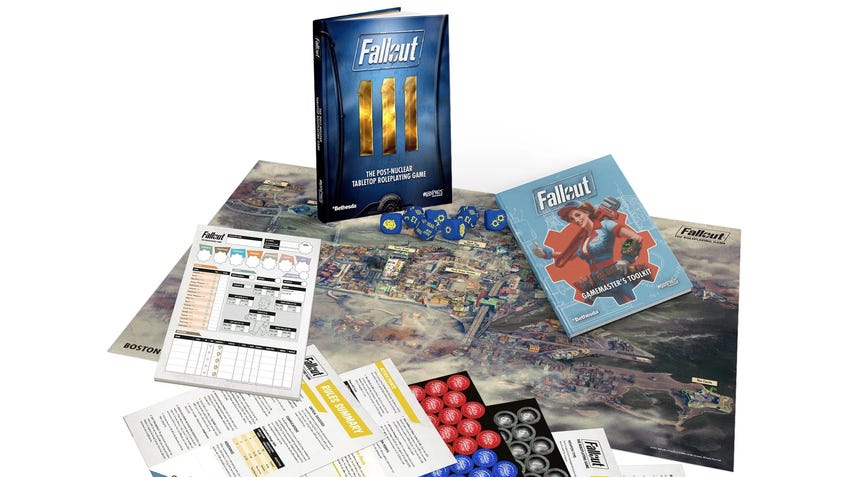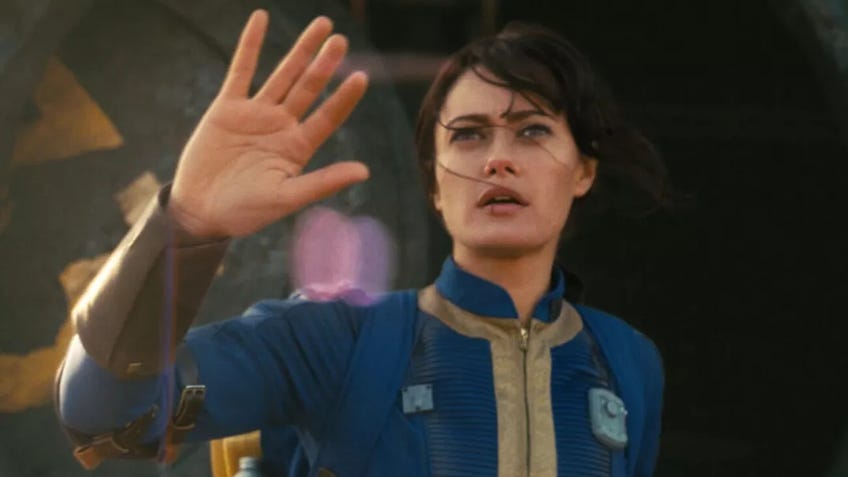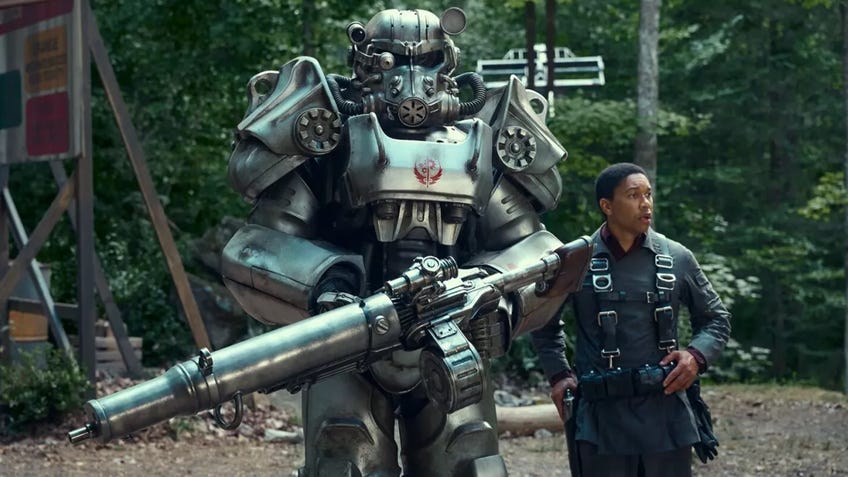The Fallout TV show owes even more to its tabletop RPG than the video games
Don’t wander the wasteland alone.
Amazon’s Fallout TV series is, by all accounts, pretty great. It’s a faithful and spirited treatment of an inspired video game series, and seeing its iconoclastic visual design realised in this way is extremely impressive.
So impressive, in fact, that many viewers may have been struck - as I was - with the desire to bring things full-circle and start exploring the wasteland for themselves again. Yet, for my money, Fallout’s TV adaptation tells a different kind of story - one that may be more well-suited to the tabletop than to any of its video games. Fallout tells, among others, the stories of Lucy, Maximus and The Ghoul, who become tangled up in a madcap quest to decide the fate of the wasteland by acquiring a decapitated head. Without giving too much away, it’s only really Lucy who has a ‘traditional’ Fallout story (vault dweller who goes to the surface in search of something and becomes tangled in a larger plot), with the show’s treatment of its other leads and its eventual incorporation of them into one unlikely unit a stark departure from what most people understand as the video games’ bread and butter.
Fallout has always been a series about being alone. You play as the Sole Survivor, the Lone Wanderer, the Chosen One: a traveller who moves either alone or with a single companion between static villages, never accepted anywhere. You travel the wasteland, braving harsh conditions, an itinerant fighter who’s encouraged to see all four corners of Fallout’s open worlds. The natural unit of Fallout is the single wanderer, with maybe an NPC or dog in tow, living off scavenged ammo and scraps. Non-player characters stay, by and large, in one place. Stories of dead survivors are told with terminal entries and voice recordings, assembled piecemeal into compelling tales that are, to me, the series’ biggest and best signature.
The Fallout TV series isn’t the tale of one lone adventurer making their mark; it's a story of unlikely and often unwilling collaboration between characters from far and wide. Those stories are uniquely suited to tabletop.
Yet Fallout’s new TV instalment doesn’t have any of these hallmarks. It’s not the tale of one lone adventurer making their mark; it's a story of unlikely and often unwilling collaboration between disparate parts, characters from far and wide coming together to find themselves and change their fate - and those stories are uniquely suited to tabletop.

Among the Fallout show’s best decisions is expanding its focus beyond Lucy’s story. The show introduces a host of lead and side characters - particularly the torn and ambitious Brotherhood squire Maximus, and actor-turned-gunslinger Cooper Howard. Both of them cut great figures as deuteragonists, and what works so well is the show’s willingness to branch out the typically pretty limited protagonist from fish-out-of-water vault dweller stories to arcs that cover a bit more ground. Fallout is a GM’s dream, providing 200 years and three million square miles of post-apocalyptic America from which to draw, and this kind of radical freedom is perfect for creating a party of varied oddballs thrown together by the chaos of the wasteland.
Fallout is a GM’s dream, providing 200 years and three million square miles of post-apocalyptic America from which to draw.
The thing is, player characters like those of Howard and Maximus just aren’t really available as a constituent part of Fallout’s video game instalments. This is, unsurprisingly, one of the first things that Fallout’s tabletop RPG adaptation seeks to change, with options written in to play sentient robots and super mutants. So much of Fallout’s appeal lies in these wacky, one-off characters, spliced together from crazed sci-fi and old world remnants - sentient robots who loathe their creators for making them do menial cleaning jobs, super mutants obsessed with Shakespeare. All of these possibilities are there in Fallout, registered, visible, interactable, but not playable. Fallout’s TV show explores these possibilities as leads, populated with pre-war flashbacks, Vault-Tec mysteries, exploring the inner workings of the wasteland from its native inhabitants, rather than an outside observer - an option that’s first on the list for any budding Fallout GM.

If tabletop Fallout sounds appealing, you should relish it now that it’s here. Fallout was initially conceived as an adaptation of GURPS, one of the oldest kids on the tabletop roleplaying block, but this influence never made it past a few test versions of the game. Shockingly, a game born out of pen-and-paper campaigns between developers at studio Interplay Entertainment didn’t receive an official tabletop title for decades after release. Only in 2021 did Modiphius release what we have now, a 2d20 system that - while not without flaws - is a spectacularly faithful recreation of the Fallout experience at the table. Even if that isn’t to your liking, GURPS is still all there, offering the building blocks out of which Fallout was originally made.
Part of the Fallout TV show’s appeal is more than seeing the video games’ visuals recreated - it’s the lightning-in-a-bottle world, the wide open wasteland, and the freedom to create a new story within it. So if Fallout has got your creative gears turning, there’s a core rulebook ready and waiting.

